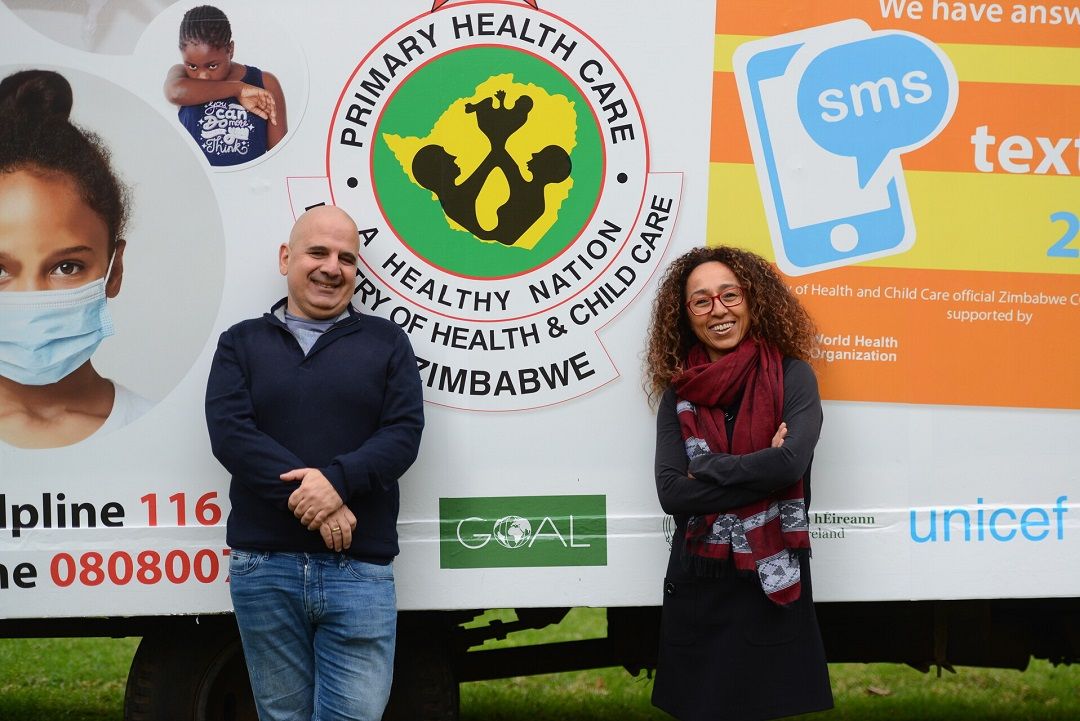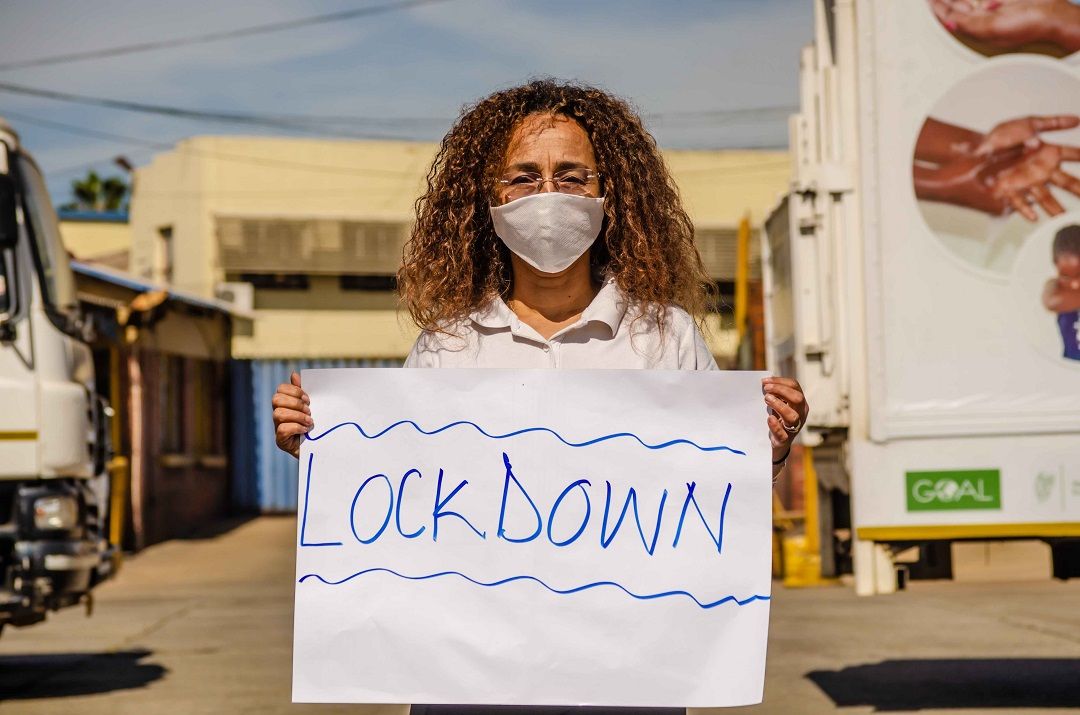 Blogs
Blogs
August 18, 2020 • 4 min read
GOAL Zimbabwe's Country Director, Gabriella Prandini, has been working on the humanitarian frontline for 20 years. On World Humanitarian Day, she writes about the unique challenges shared by humanitarian aid workers this year due to the COVID-19 pandemic.
"I am grateful that I am able to do what I do every day, but even more grateful for the GOAL team here. Despite all the challenges of COVID-19, they are out there everyday providing life-saving assistance to the most vulnerable."
It was probably inevitable that I was going to end up working in the humanitarian aid sector. My grandmothers were born in a village in Ethiopia and had very poor and humble beginnings. I was raised in Ethiopia and even as a child it was quite apparent to me what sort of inequalities existed in the world.

GOAL Zimbabwe’s Country Director Gabriella Prandini
In my earlier career I worked in the private sector, but I ended up following my heart and putting my energies into the development aid sector. I have worked as Country Director for GOAL for 4 years.
When I rang in the New Year in Harare several months ago with my family, I was happy to say goodbye to what was a catastrophic year for Zimbabwe. 2019 saw the country ravaged by a combination of Cyclone Idai, drought and spiralling inflation which crippled the economy. 2020 started with a poor rainy season and a prediction from the World Food Programme (WFP) that over five million people would be food insecure in Zimbabwe. In GOAL we started preparing to rollout new food distribution programmes in partnership with WFP to support those in need.
And then, in March, COVID-19 hit.
GOAL Zimbabwe swung into emergency response mode. It was immediately clear that Africa and Zimbabwe were facing into the unthinkable fallout of COVID-19, with poor nutrition, vulnerabilities arising from the climate crisis, and critically weak health systems. And ongoing conflict and poverty in many countries in Africa was further weakening the ability to fight a pandemic.
GOAL quickly adapted its programmes globally to adjust to this new context. Here in Zimbabwe we tried to think outside the box to see how we could get vital COVID-19 messaging to communities.

Gabriella Prandini (right) with John Christou, the CEO of Promobile.
By the end of March, GOAL had started a private sector partnership with mobile advertising company, Promobile, a collaboration which has proven to be hugely successful.
Since then we have reached over 2.5 million people with COVID-19 messaging and supports, using six Promobile trucks travelling through districts.
This partnership is to be expanded next month, adding a 7th vehicle to the fleet and allowing us to reach even more people.
In partnership with the Ministry of Health and UNICEF, Irish Aid and USAID, we also launched a national radio campaign on basic steps to take to halt the spread of the virus.

Gabriella Prandini taking part in a campaign to highlight rising rates of Gender-Based violence during COVID-19 lockdown.
With a frail health infrastructure, the only way Zimbabweans have a chance is through strict preventative measures. We see that countries in Europe were struggling in the initial COVID-19 surge with lack of space in their hospitals and insufficient equipment and protective clothing in their response to COVID-19. The struggles here if the virus spreads and really takes a hold will be far greater.
While people all over the world are now familiar with the main COVID-19 prevention messages – to wash hands regularly and keep a social distance – there are huge challenges here still. Some areas don’t have access to clean safe water, or indeed soap. And keeping a social distance in densely populated communities is near impossible.
While initially the numbers of COVID-19 cases in Zimbabwe were low, the numbers are rising steadily. There are now more than 5,000 cases of COVID-19 in Zimbabwe with 130 deaths.
Lockdown in a country like Zimbabwe is not easy. While it is contributing greatly towards the prevention of the spread of the coronavirus, it also means that people are living day-to-day and the number of food insecure households is increasing.
As we head onto even more uncertain times, for once we in Zimbabwe no longer feel on our own with our struggles. The whole world is struggling, and one advantage Zimbabweans have is that they have built up huge resilience due to past crises long before COVID-19.
I am grateful that I am able to do what I do every day, but even more grateful for the GOAL team here. Despite all the challenges of COVID-19, they are out there everyday providing life-saving assistance to the most vulnerable.
